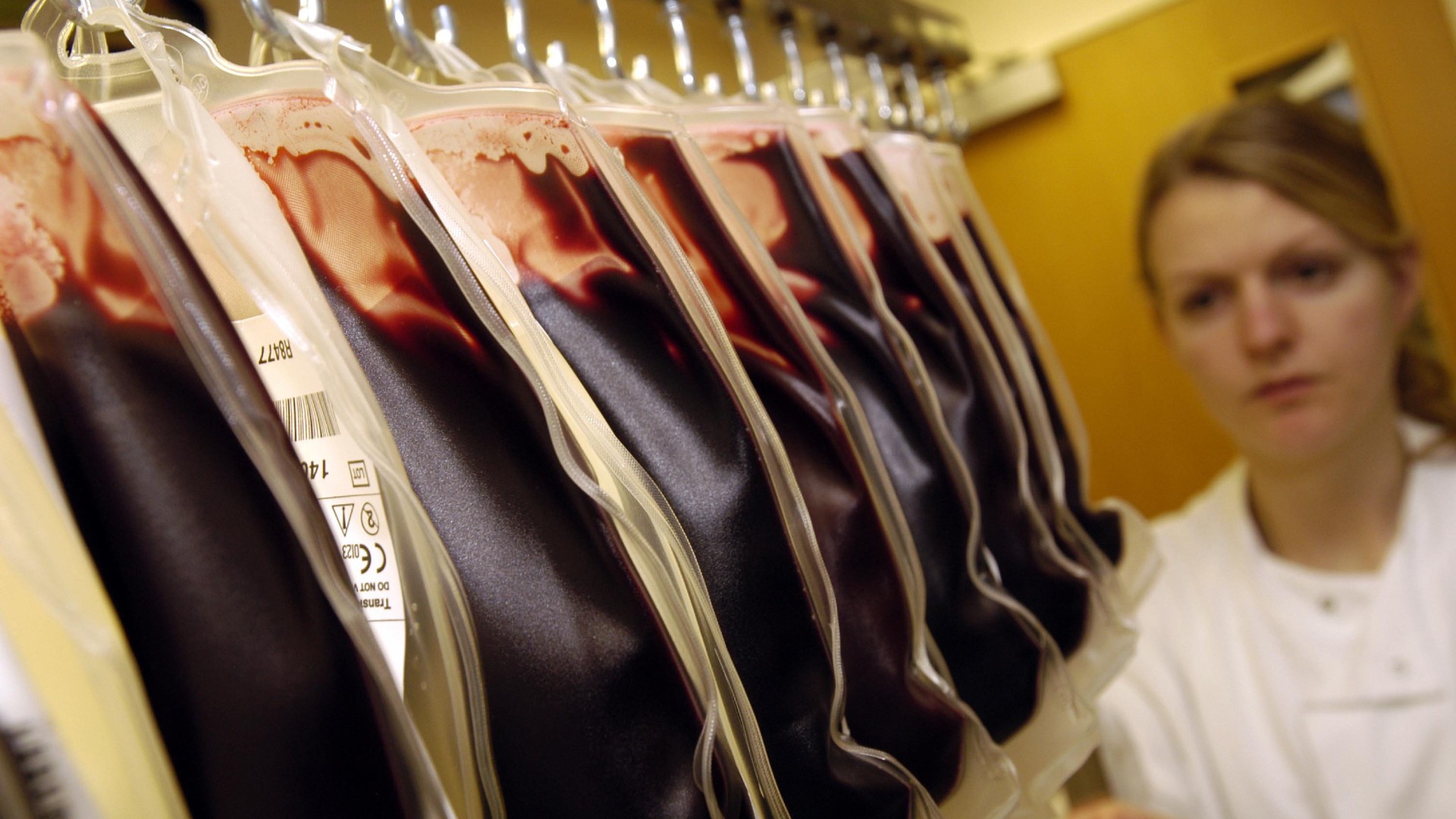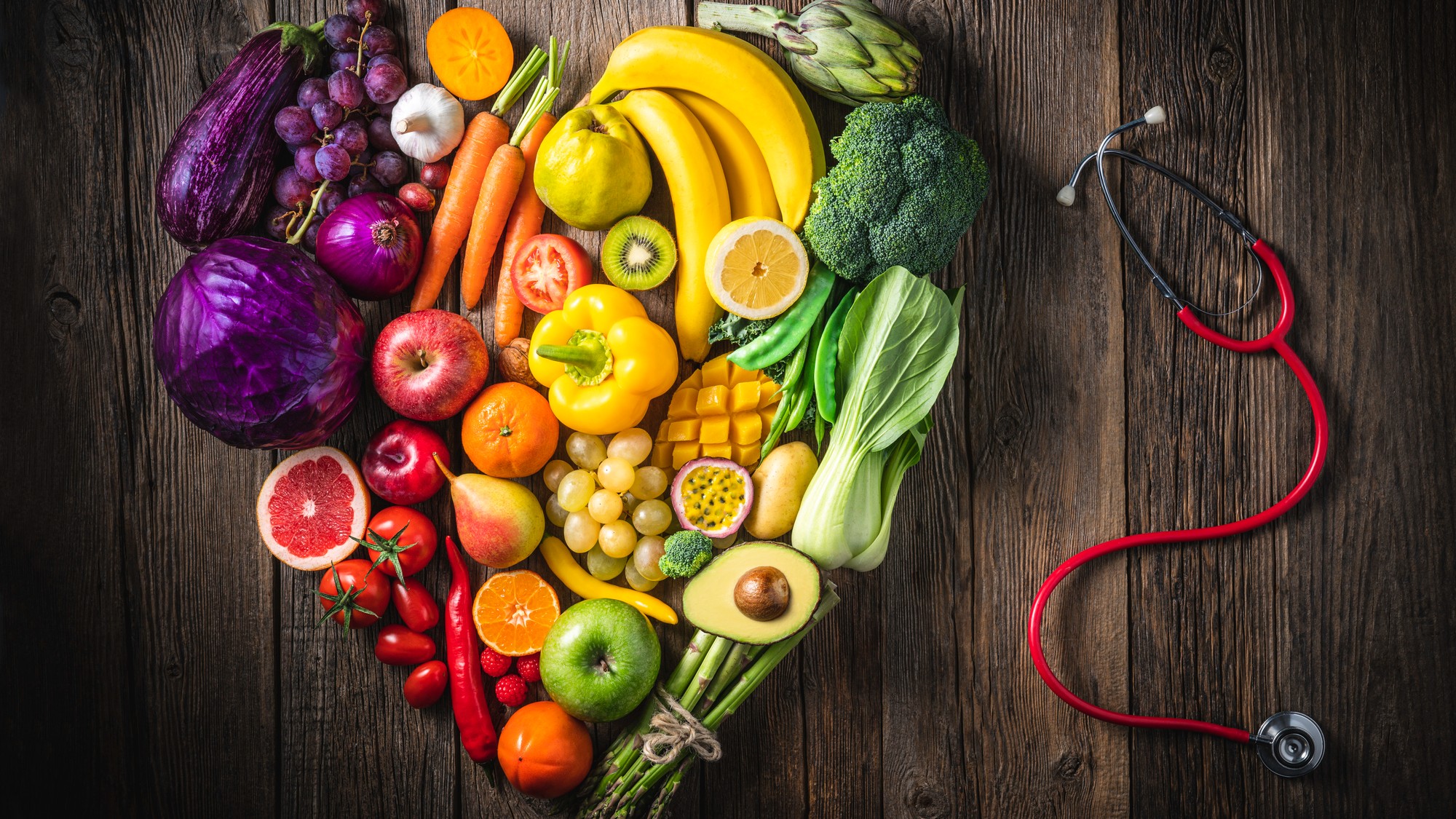Should blood donors be paid?
Financial rewards would help fill NHS shortfall but bring risk of contamination and exploitation, WHO warns

A free daily email with the biggest news stories of the day – and the best features from TheWeek.com
You are now subscribed
Your newsletter sign-up was successful
A new NHS call for blood donors to make – and keep – appointments in the run-up to Christmas has reignited the debate around how to increase rates of donation, including the use of financial incentives.
For many, the idea of paying for blood plasma "elicits concerns about the commodification of the human body", said Politico. For others, "paying donors a flat fee for their time and trouble should be part of the solution" to what is a growing global shortfall.
How often does the UK run low on blood?
The festive period is an annual crunch time for blood stocks "as cold weather, seasonal illnesses and busier diaries lead to more unfilled and missed appointments, while demand from hospitals can rise", according to the NHS Give Blood website. Last December, donations were 10% below the monthly average, with demand for the vital O-negative blood type – the universal type used to save lives in emergencies – exceeding collections.
The Week
Escape your echo chamber. Get the facts behind the news, plus analysis from multiple perspectives.

Sign up for The Week's Free Newsletters
From our morning news briefing to a weekly Good News Newsletter, get the best of The Week delivered directly to your inbox.
From our morning news briefing to a weekly Good News Newsletter, get the best of The Week delivered directly to your inbox.
It is not just a winter problem. This summer, the BBC reported that blood stocks had dropped to "unprecedentedly low" levels in England, following a "perfect storm" of no-show appointments as donors went on holiday, as well as increased demand following a cyber-attack which affected services in London. At the time, there was a 1.6-day supply of O-negative blood in England, well below the six-day target.
Which countries allow blood donors to be paid?
According to the World Health Organization (WHO) about 118.5 million blood donations were collected worldwide in 2023. Of these, 40% were drawn from high-income countries, home to just 16% of the world's population.
The US, Germany, Austria, Czech Republic and Hungary currently allow for a flat-fee payment for donating blood, and these five nations account for 80% of the global supply of plasma, the main component of blood, and a crucial ingredient in a range of medicines. In the US, the average payment per plasma donation is $80-$85 (£63-£67), said Matthew Hotchko of the Marketing Research Bureau, while blood and plasma donors in Austria receive an average of €30 (£25) per donation, with a maximum of 50 donations permitted per year.
Many other countries offer "non-monetary compensation like time off work or vouchers", said Politico.
A free daily email with the biggest news stories of the day – and the best features from TheWeek.com
Would paying donors boost donations in the UK?
Only around 7% of people in the UK donate blood on a regular basis, according to a YouGov poll from 2022, with most of these aged 45 or older. According to the survey, more than a third of Britons who do not currently donate blood said they would do so if they were paid.
Young people, in particular, are more likely to state they would donate blood if they were paid, with the number of potential donors rising to 47% of non-donors aged 18-24, and 46% of those aged 25-49 if money were involved.
What are the drawbacks?
Despite evidence suggesting paying donors could help solve global blood plasma shortages, the WHO wants to move towards "100% voluntary, non-paid blood donation in every country, as blood-borne infections are lowest among voluntary, unpaid blood donors", said The Independent.
Concern over safety is, however, not "well founded", said The Economist. In places such as Britain, scandals involving infected blood "loom large in the public consciousness". Yet there is "little evidence that plasma that is paid for is more likely to transmit disease than plasma from unpaid sources", said the magazine, "and even if it was, plasma can be heavily processed to ensure it is safe".
Another worry is that the privatisation of blood services leads to the exploitation of donors. The US made $37 billion (£29 billion) from exports of blood products last year, more than from coal or gold, and with a "large and growing population of people on the economic ropes", the business of Americans' blood plasma has become a "hugely profitable one", said The Guardian.
In Hungary's case, paid donations have led to "some troubling unintended consequences", reported Balkan Insight. Although by law donors can be paid only 7,500 forints (£15) in cash, there is no regulation on additional incentives, such as shopping vouchers and entry into prize draws and lotteries. In left-behind regions, home to the "most vulnerable, racialised and financially disadvantaged segments of societies", a "wild west" of private donation centres has turned plasma donation into a "regular, if dangerous, form of income".
-
 Political cartoons for February 15
Political cartoons for February 15Cartoons Sunday's political cartoons include political ventriloquism, Europe in the middle, and more
-
 The broken water companies failing England and Wales
The broken water companies failing England and WalesExplainer With rising bills, deteriorating river health and a lack of investment, regulators face an uphill battle to stabilise the industry
-
 A thrilling foodie city in northern Japan
A thrilling foodie city in northern JapanThe Week Recommends The food scene here is ‘unspoilt’ and ‘fun’
-
 ‘Zero trimester’ influencers believe a healthy pregnancy is a choice
‘Zero trimester’ influencers believe a healthy pregnancy is a choiceThe Explainer Is prepping during the preconception period the answer for hopeful couples?
-
 A real head scratcher: how scabies returned to the UK
A real head scratcher: how scabies returned to the UKThe Explainer The ‘Victorian-era’ condition is on the rise in the UK, and experts aren’t sure why
-
 How dangerous is the ‘K’ strain super-flu?
How dangerous is the ‘K’ strain super-flu?The Explainer Surge in cases of new variant H3N2 flu in UK and around the world
-
 Stopping GLP-1s raises complicated questions for pregnancy
Stopping GLP-1s raises complicated questions for pregnancyThe Explainer Stopping the medication could be risky during pregnancy, but there is more to the story to be uncovered
-
 RFK Jr. sets his sights on linking antidepressants to mass violence
RFK Jr. sets his sights on linking antidepressants to mass violenceThe Explainer The health secretary’s crusade to Make America Healthy Again has vital mental health medications on the agenda
-
 Nitazene is quietly increasing opioid deaths
Nitazene is quietly increasing opioid deathsThe explainer The drug is usually consumed accidentally
-
 The plant-based portfolio diet invests in your heart’s health
The plant-based portfolio diet invests in your heart’s healthThe Explainer Its guidelines are flexible and vegan-friendly
-
 More women are using more testosterone despite limited research
More women are using more testosterone despite limited researchThe explainer There is no FDA-approved testosterone product for women